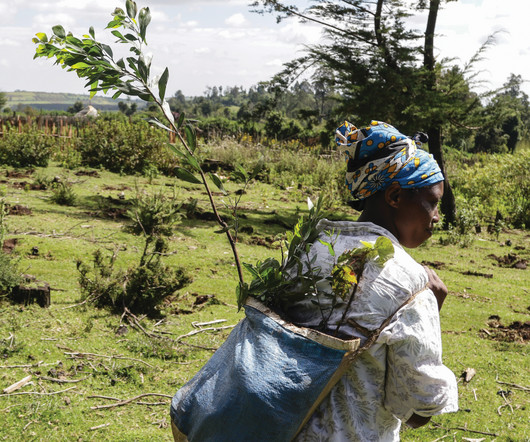Nature-based solutions key to combatting climate change and biodiversity loss, says Lords
Envirotec Magazine
OCTOBER 19, 2021
The House of Lords Science and Technology Committee has written to Alok Sharma MP, President for COP26, citing recent evidence gathered as part of the Committee’s ongoing inquiry into nature-based solutions for climate change.


























Let's personalize your content